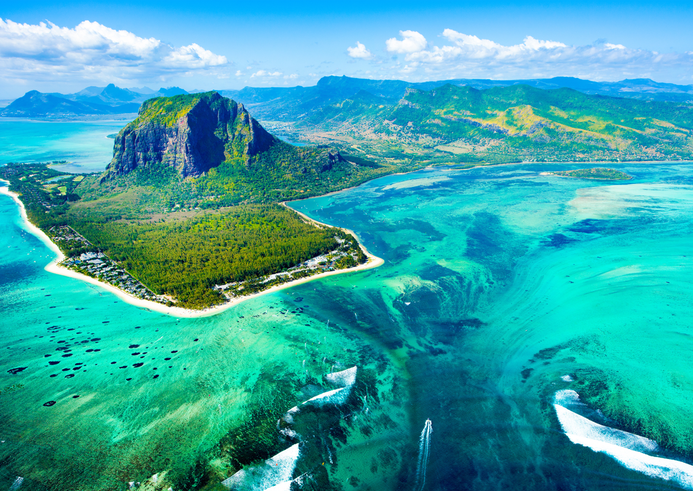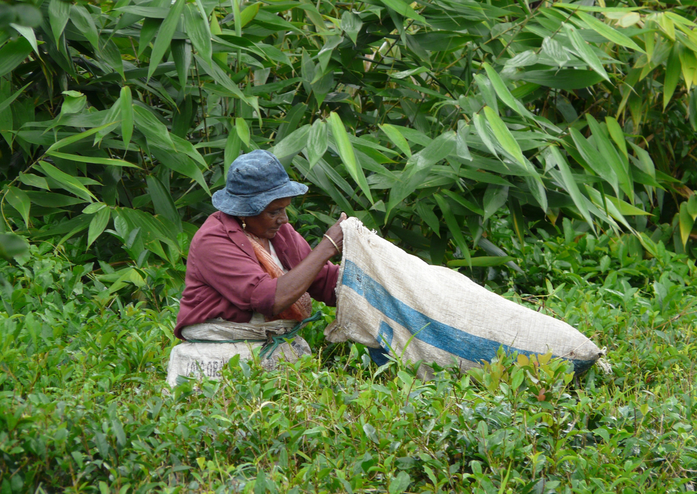|
The Republic of Mauritius is an island nation situated in the Indian Ocean, approximately 2,000 kilometres off the southeastern coast of East Africa, east of Madagascar. Its territory comprises the main island, Rodrigues, Agaléga, and St. Brandon. Until I travelled to Mauritius, I did know that it wasn't home to any indigenous population but a huge colony of now extinct Dodo birds and tortoises. (Apparently, they were a slow moving bird that could be caught and eaten easily). Its journey began with Arab sailors who discovered it around 975 CE, followed by Dutch colonists named it after Prince Maurice of Nassau in the 16th century. Old world superpowers of the time encouraged colonisation and migration and have shaped the diverse population of Mauritius today. French, English and Dutch brought labourers from Indian and African labourers. Indo-Mauritians form the majority today, followed by significant Creole, Sino-Mauritian, and Franco-Mauritian communities. From the captivating sounds of Sega music, a blend of African and European influences, to the colourful Hindu temples and French colonial architecture, the island showcases a beautiful fusion of traditions. Mauritian Hospitality Etiquette Mauritians are renowned for their warmth and hospitality. Their welcoming spirit and the island's natural beauty make it a top tourist destination. Due to varying social norms influenced by cultural and religious backgrounds, each community defines respectful behaviour according to its standards. Hosts typically offer food and drink like biscuits and tea, and it's considered polite for guests to try everything served, making the host feel honoured for their labours. While guests aren't expected to bring gifts, a small item from your country of origin, fruit or cake will be pleasing. Sunday afternoons often see people visiting each other, and it’s a time to relax on the beach or next to the water with a BBQ with freshly caught fish, vegetable dishes and a bottle of local beer or rum. When eating foods, whether Indian, Creole, or Asian, a fork, spoon, and knife are used, as well as hands and chopsticks. Food Found in Mauritius I found that food is Indian based without the spice or heat you would find in India or Sri Lanka. Street food sellers will offer a few varieties of fast food, from noodles to rolled roti veg snacks to deep friend pakoras and samosas. On the island of Rodrigues, you will find Creole-based foods from fresh seafood, crab soup, pork chops to rice, maize, cornmeal to fresh green papaya salad with a side of rum that has been steeped with local ingredients such as chilli, oranges, ginger, cinnamon, cumquat and homegrown vanilla. You will find that there are many religions on the island. Therefore, many households will have different religo-cultural traditions, and food will be served accordingly. The Hindu population will avoid eating beef; therefore, gifts should not be leather; Muslims will avoid eating pork and gifting anything created in pigskin or offer alcohol, and Catholics abstain from eating fish on a Friday. I thoroughly enjoyed holidaying in Mauritius. I was awed by its beautiful green forests, animal life, cultural diversity and different food offered. People are relaxed and happy to talk with you and its vast clean beaches and temperate climate. One of the points of interest on my holiday to-do list was to visit the famous Bois Cheri Tea Factory. This plantation produces tonnes of Mauritian-grown tea distributed throughout the island and worldwide. There, I learned about the green and black tea process. It was a tremendous insight, and I felt honoured to have known more about a drink that has been drunk worldwide over the centuries and helped me as an etiquette instructor.
There is so much to do in Mauritius, and I hope that you have a wonderful time. Article Published By: Etiquipedia.blogspot.com
0 Comments
Leave a Reply. |
AuthorElizabeth Soos Archives
August 2025
Categories |
|
CONTACT US Submit Your Enquiry |



 RSS Feed
RSS Feed

